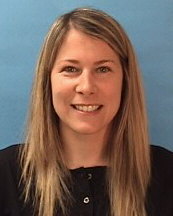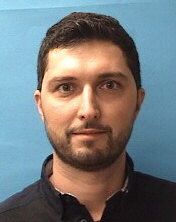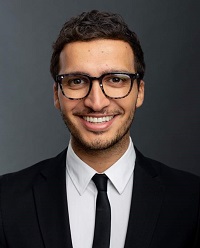Welcome
WELCOME!
Sociology is an integral part of the John Abbott College Social Science program and offers courses for Social Science, Nursing, Police Technology and Youth and Adult Correctional Intervention students. Students from all programs are welcome to take our complementary courses in Sociology of Cyberspace and Culture and Media.
Our dedicated teachers, Kathryn Allen, Vicki Beaupre-Ordorico, Mariella Castenella, Richard Element, Wendi Hadd, Jessica Legere, Roger MacLean, Roksana Nazneen, John Pestana, and Luba Serge teach and create challenging and enriching Sociology courses to a diverse student population. As sociologists, we challenge common sense knowledge and help students to understand that many of the things we perceive to be “natural” are in fact socially constructed and organized. Our stimulating and dynamic class experiences provide an opportunity to begin thinking critically about taken-for-granted assumptions, and in the process, understand the many ways personal experience is shaped by social processes and social institutions.
The Sociology and Anthropology department is located in Herzberg 326 .
WHY DO PEOPLE DO THE THINGS THEY DO?
Students of Sociology develop their sociological imagination – a way of thinking about the world that can help us to answer this question.
Sociology is the study of social organization in modern society. In exploring that social organization, sociologists believe it can’t be understood by simply studying individuals. Instead, sociologists study social life in order to understand its complexity, especially patterns of human interaction and group activity. Students of sociology learn to think critically about social issues, challenging old ideas and assumptions about society. This awareness and understanding of the world can promote societal change.
Sociologists look at social structures and institutions and ask how things like race, gender, ethnicity and age affect social life. Students of Sociology can learn about many aspects of society, including families, socialization, deviance, social inequality, the impact of technology and environmental issues, among many others.
WHAT IS SOCIOLOGY?
Sociology…
…is a science which attempts the interpretive understanding of social action in order thereby to arrive at a causal explanation of its course and effects—- Max Weber
…every time that a social phenomenon is directly explained by a psychological phenomenon, we may be sure that the explanation is false. —- Emile Durkheim
Members of the Department

MacLean, Roger
Sociology514-457-6610 ext. 5755
H-346
roger.maclean@johnabbott.qc.ca
I completed my BA in Sociology, with a thesis, at Acadia University in the area of work and how people perceive authority based on data collected in Hamilton Ontario. My MA in Sociology at Concordia was in the area of Religion and how people maintain their systems of belief, which was built on my Associates Arts degree in Theology.
For my PhD, I worked in Mali West Africa for two summers collecting social science and natural science data to develop an approach to empower women to grow fusarium oxysporum to manage a weed Striga. I completed my PhD at McGill in the department of Agricultural & Biosystems Engineering (BioResource Engineering).
Presently I have main interests in environmental and global issues, especially in the areas of exploitation of workers and women. I am also interested in the present global issues of WATER and the limitations on availability.
Another area of interest is global consumer behaviour, global marketing and business practices, especially in terms of how our purchasing choices impact those in other countries. Finally I have working in the areas of using 3D and Virtual Reality for teaching.
My teaching philosophy is that students learn best through interaction and independent decision making.

Nazneen, Roksana
Sociology514-457-6610 ext. 5123
H-346
roksana.nazneen@johnabbott.qc.ca
I completed MA in Sociology from Concordia University in 1993. The title of my thesis was “Foreign Aid in Developing Countries”. I received Ph.D. in Humanities (Sociology, Economics and History) from Concordia University in 2000.
The area of my research interest was to study the experience of immigrant adaptation in Canadian society. I taught at McGill (as a graduate student), Concordia and Brock University before coming to teach at John Abbott in 2006.
I received the Queen Elizabeth the 2nd Diamond Jubilee Award issued by the Governor General of Canada in 2012.
My current research interests include immigration, ethnic minority experience, and identity politics.
Courses
We teach courses in the Social Science program as well as Complementaries courses. We invite you to browse through the appropriate sections of the Program Planner.
Supplemental Information
Supplemental Information
A Sociological Tour Through Cyberspace
http://www.trinity.edu/~mkearl/index.html
Canadian Sociology Departments:
http://www.ualberta.ca/~cjscopy/candept.html
http://www.mcmaster.ca/socscidocs/othdepta.htm
Julian Dierkes’ Links at Princeton:
http://www.princeton.edu/~sociolog/links.html
Career and University Paths
Sociology as a discipline and part of the Social Science Program is an excellent foundation for various occupations and professions. Sociology can provide a rich fund of knowledge and many distinctive ways of looking at the world so as to generate new ideas and assess the old. Sociology can give college students a basic standard preparation for career options in all the fields listed below, with advanced study and/or training in relevant work experience to qualify for full professional status.
Areas of Employment
1) Advertising:
Mass Communication Analysis, Motivational Research, Public Opinion Polls.
2) Banking and Finance:
Community Relations, Customer Relations, Employee Relations, Organizational Planning, Personnel Administration.
3) Communications:
Consumer Research, Labour Relations, Employee Relations, Mass Communications Analysis, Public Opinion Polls.
4) Criminal Justice:
Law Enforcement, Criminology, Delinquency Prevention, Penology and Corrections, Probation & Parole, Court Administration, Private Security.
5) Insurance:
Area Studies, Community Relations, Customer Relations, Employee Relations, Population Studies, Public Health.
6) Manufacturing:
Community Relations, Employment Interviewing, Customer Relations, Employee Relations, Industrial Sociology, Labor Relations, Motivational Research, New Business Research, Organizational Planning, Personnel Administration, Manpower Resource Studies.
7) Marketing:
Consumer Research, Motivational Research, Population Administration.
8) Merchandising:
Consumer Research, Customer Relations, Personnel Administration.
9) Medical Services:
Alcoholism & Drug Abuse, Addiction Research, Community Relations, Employee Relations, Hospital Casework, Medical Sociology, Organizational Planning, Public Health.
10) Social Services & Government:
Child Welfare, Social Work, Community Agency, Community Planning & Development, Community Organization, Family Welfare, Group Interaction, Housing Studies, Interviewing (non-diagnostic), Manpower Resource Studies, Minority Group & Race Relations Studies, Population Studies, Public Welfare-Housing, Casework, Race Relations, Urban Planning.
A Sociology major is also an excellent preparation for the study of law, public administration, hospital administration, publishing, rehabilitation counseling, recreation planning and administration, career planning and counseling, and sales.
Employment Outlook in Some Occupations Directly Related to Sociology
a) Urban Planning:
The rapid change in our way of life, urban development and sprawl, housing, traffic, land use, urban renewal and urban development all call for a broad understanding of the social forces at work. Previously, such planning placed heavy emphasis on engineering and scientific backgrounds, but not so today. In fact, urban planning has developed a professional program of studies leading to an advanced degree.
b) Social Work
Social work, a professional method of helping people with diverse problems, may be entered directly from college, although graduate work is rapidly becoming essential for positions of leadership and responsibility. Social workers practice case work, group work, social research, social planning, health administration, and community organization.
c) Market and Survey Research
Market and survey researchers are employed in advertising agencies, manufacturing companies, communications industries, and independent firms that conduct public opinion research. Individuals engaged in market and survey research departments determine how people vote and why; who watches what in the media and why; and who buys what product and why. Those who work in independent firms are often called as consultants to business to determine consumer values, attitudes of employees and management toward communication channels, attitudes toward government programs, and forecasting consumer and business trends.
d) Human Resources/Administration
The increase in job discrimination suits, pension laws, federal regulations and labor disputes have made the human resources department an integral part of organizations (governmental, industrial, hospital, etc.). The tasks of people engaged in human resources/administration include recruiting and interviewing, employee counseling, testing of employee attitudes, wage and salary administration, labor relations, job development, and employee training. Human Resources/Administration have developed a professional program of studies leading to an advanced degree.
e) Medical Services/Administration
Individuals engaged in Medical Services/Administration are employed by government departments (e.g., public health, mental health, food and drug), voluntary health agencies, planning agencies, mental health centers, hospitals, nursing homes, alcohol addiction & drug abuse centers, and senior citizen centers specializing in health, recreation, nutrition, education, housing and employment for the aging. Medical Services/Administration have developed a professional program of studies leading to an advanced degree (e.g.rehabilitation counseling and administration, gerontological services administration, health services administration, and community mental health).




